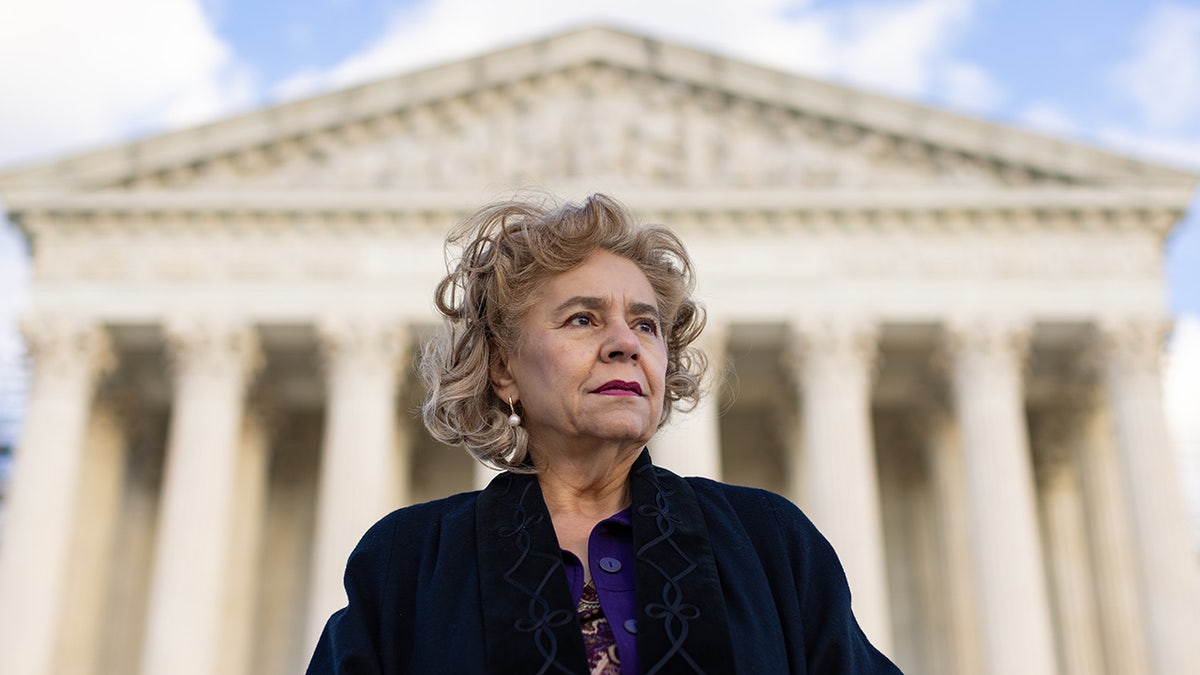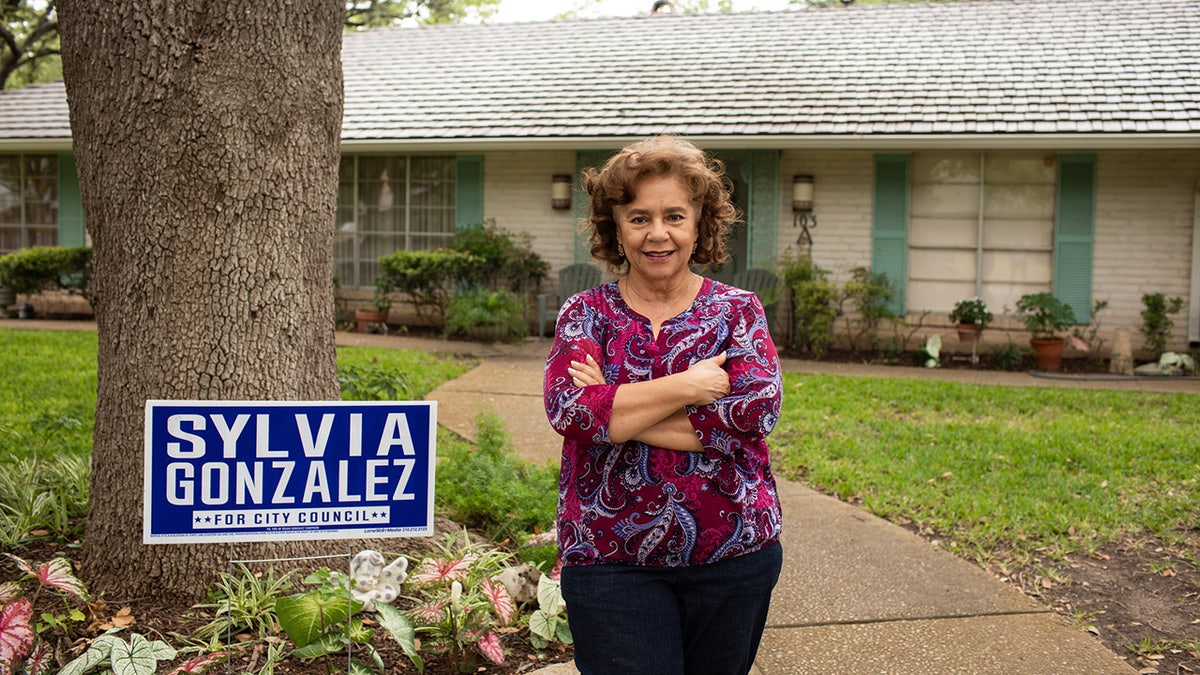The Supreme Court on Thursday ruled in favor of a Texas ex-councilwoman who was thrown in jail in an act of political retaliation.
Sylvia Gonzalez and her attorneys at the nonprofit Institute for Justice (IJ) sued Castle Hills Mayor JR Trevino and other officials, alleging they plotted to remove her from office as retaliation for criticizing the city manager, thereby violating her First Amendment rights.
A Fifth Circuit court tossed her case, saying she didn’t present required evidence to advance a “retaliatory-arrest” case that would show others had not been arrested after engaging in similar conduct. She had been arrested for allegedly trying to remove a document from a city council meeting that she claimed she did not realize she had in the first place, and the charges were eventually dropped.
The Supreme Court on Thursday reversed the Fifth Circuit’s decision, finding that Gonzalez’s research showing that the statute under which she had been charged had never been used in her county to prosecute someone for “trying to steal a nonbinding or expressive document” was sufficient to support her claim. The Fifth Circuit, in ruling against her, said she needed more.
“That court thought Gonzalez had to provide very specific comparator evidence – that is, examples of identifiable people who ‘mishandled a government petition’ in the same way Gonzalez did but were not arrested,” the Supreme Court said in an unsigned opinion, adding that “the demand for virtually identical and identifiable comparators goes too far.”
SUPREME COURT HEARS CASE OF TEXAS GRANDMOTHER THROWN IN JAIL AFTER CRITICIZING CITY GOVERNMENT

Castle Hills police arrested then-Councilwoman Sylvia Gonzalez in July 2019 on a rarely used charge of tampering with a public document. (Courtesy Institute for Justice)
Gonzalez’s story began in 2019, when constituents had complained that the city manager, Ryan Rapelye, was unresponsive, particularly to their concerns over the condition of their streets.
As soon as she was elected, Gonzalez championed a nonbinding petition calling for the city manager to be replaced with a previous manager who residents felt had done a better job. Another resident introduced the petition at Gonzalez’s first city council meeting. Discussion of the manager’s job performance “grew contentious,” according to court records, and the meeting was extended through the following day.
At the end of the meeting, Gonzalez said she straightened up the papers strewn across her dais and put them in her binder before going to talk to a constituent.
A police officer interrupted the conversation, telling Gonzalez that Trevino wanted to speak with her, according to court documents. Gonzalez went back to the dais and Trevino asked where the petition was. Gonzalez said she didn’t know. Trevino allegedly asked her to look in her binder, saying he could see a clip inside.
Indeed, the petition was in the binder, so Gonzalez handed it over and thought nothing of it. But two months later, she learned from a neighbor that there was a warrant out for her arrest.
“I didn’t even know what I was accused of,” Gonzalez, a 72-year-old grandmother, told Fox News. “I’d never been in jail… and it was very scary to an old lady like me.”
MOMS SUE STATE OVER ‘CREEPY’ BABY BLOOD DATABASE, PRIVACY CONCERNS

“I’d never been in jail… and it was very scary to an old lady like me,” Sylvia Gonzalez told Fox News Digital. (Courtesy Institute for Justice)
Trevino and Police Chief John Siemens used the briefly displaced petition to launch a criminal investigation into Gonzalez, her lawsuit alleges. Three weeks into the investigation, the police chief assigned a “trusted friend and local attorney” to take over as a “special detective,” according to Gonzalez’s complaint.
The special detective produced an arrest affidavit alleging that Gonzalez had “been openly antagonistic” toward the city manager from her first meeting, “wanting desperately to get him fired.” The affidavit also accused Gonzalez of misleading a woman by “telling her several fabrications” about Rapelye in order to get her signature, according to court documents.
Detectives found probable cause to believe Gonzalez stole her own petition when she put it in her binder with other papers, violating a Texas ban on intentionally removing or destroying government records, according to court documents from the defendants.

Sprinklers water the lawn in front of the U.S. Supreme Court on April 29, 2024. (Bill Clark/CQ-Roll Call, Inc via Getty Images)
The statute is usually used in cases involving fake Social Security numbers, forgeries of official checks and counterfeit green cards, Institute for Justice senior counsel Anya Bidwell said. IJ looked at 10 years of Bexar County data and couldn’t find “anything even remotely similar” to Gonzalez’s case, she added.
Rather than seek a summons for the nonviolent misdemeanor, the special detective took the unusual step of asking for an arrest warrant, the lawsuit contends. The special detective also went straight to a district court judge, circumventing the Bexar County District Attorney’s Office.
“They wanted to punish me, and they wanted to make sure I went to jail. And they did a good job,” Gonzalez said.
Gonzalez turned herself in, was handcuffed, spent the day sitting in jail and had her mugshot splashed across the evening news. Even though the DA’s office dropped the charge, her brief political career was over.
Gonzalez sued Trevino, Siemens, special detective Alexander Wright and the city in 2020, alleging they deprived her of her rights under the First and 14th Amendments of the U.S. Constitution.
CLICK HERE TO GET THE FOX NEWS APP
“This is a great day for the First Amendment and Sylvia Gonzalez, who has courageously fought against retaliatory actions by government officials,” Bidwell said.
“The Supreme Court’s revision of its First Amendment retaliation doctrine ensures that Americans can seek justice when they have evidence of a retaliatory arrest. Retaliatory arrests undermine the very foundation of our democracy, and this ruling helps safeguard the rights of all Americans to speak out without fear of retribution,” Bidwell said.
